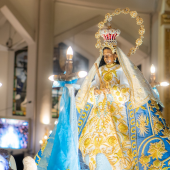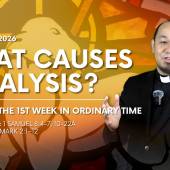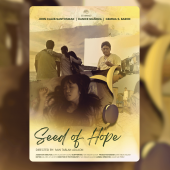Grief and healing reveal God’s universal love
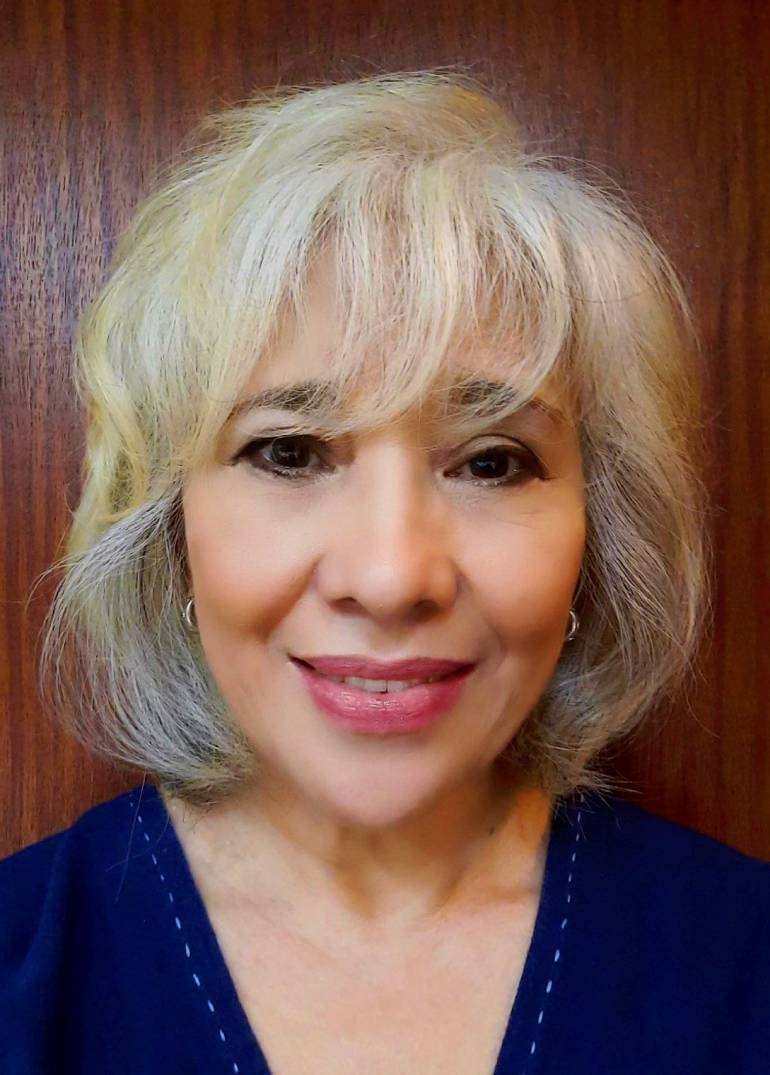
The COVID-19 pandemic has killed nearly 6.5 million people and infected another 606 million, roiling global economies and overwhelming healthcare systems, according to the World Health Organization (as of September 2022).
The health crisis has caused enormous pain, grief, and loss over the last two years. Coping and healing for those who have lost family members, loved ones, and friends have not been easy in the aftermath, but people have found a way to hope and move forward with grace.
Maria Teresa "Marites" Guingona-Africa, Ph.D., a Catholic from the Philippines, lost her husband in March 2022. In the aftermath, she wrote a book, "LOVE REMAINS IN EMPTY SPACES: Reflections on Grief and Finding Meaning in Loss in Times of COVID-19." On September 15, 2022, it won the award for best book in the Family Life category during the 16th Cardinal Sin Catholic Book Awards in Manila, the Philippines.
She has been a Lecturer at Jesuit-run Ateneo de Manila University, Philippines. She has been a promoter of Christian-Muslim dialogue in the country.
Maria Teresa is also the founder and executive director of The Peacemakers’ Circle Foundation, Inc., an interfaith organization that promotes various forms of dialogue in building mutually respectful and harmonious relationships between people of diverse cultures and beliefs.
RVA News talks to her to find out more about the book and her advocacy for Christian-Muslim dialogue. Excerpts:
Please tell us more about yourself.
I was born to devout Catholic parents and raised in Butuan City, Agusan del Norte, Mindanao, the southern region of the Philippines. In the mid-70s, I moved to Manila, where I finished my college education and raised my own family.
I later took graduate studies and attained a master’s degree in Theological Studies from the Loyola School of Theology of the Ateneo de Manila University.
In 1998, I came upon the United Religions Initiative (URI), a global community of people of diverse religions, spiritual expressions, and indigenous traditions working together to bring to the fore the highest teachings and ideals of their respective faiths for the common good.
I volunteered my services and soon became the first Coordinator of the URI in SEAPac, and later, a trustee of the URI Global Council. This inspired me to establish, in 2001. The Peacemakers’ Circle Foundation, Inc. (TPCFI) is a Manila-based non-profit multifaith organization.
In 2015, after I completed my doctoral studies in Applied Cosmic Anthropology at the Asian Social Institute, I began to teach college courses on interreligious peacebuilding at the Ateneo de Manila University.
When my husband passed away in March 2022, I took a leave from teaching but continued to contribute to the work of the Jesuits Among Muslims in Asia (JAMIA) of the Jesuit Conferences in the Asia Pacific (JCAP) as a lay partner.
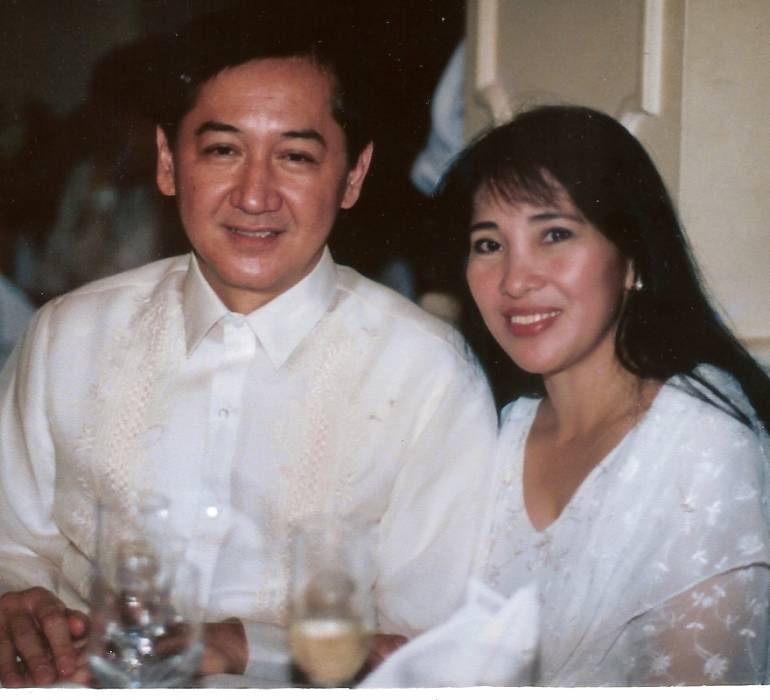
Your book "LOVE REMAINS IN EMPTY SPACES: Reflections on Grief and Finding Meaning in Loss in Times of COVID-19" won the award for the best book in the Family Life category during the 16th Cardinal Sin Catholic Book Awards ceremony on September 15, 2022. What are your thoughts after the award?
When the book was declared the winner of the category, my first thought was that it was chosen because of the message that it contained, which could bring about spiritual awareness and healing, inner transformation, and inspiration to others in these trying times.
Why did you write the book?
The book is a collection of reflections that I started writing soon after my husband passed away. Writing them was the only way I could help myself cope with the pain of loss. I was alone in quarantine and could not even be with him at the hospital when he passed away.
My two children have their own families to care for, and my husband refused to have them expose themselves to him when he fell ill. So, I only had myself during those dark times. Writing my reflections and sharing them on Facebook helped me keep my sanity.
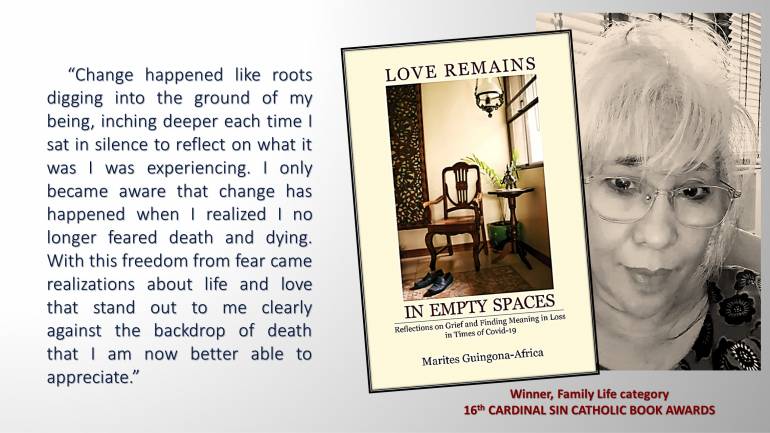
What are the main takeaways from the book?
I hope that the book will give its readers insights into life that stand out against the backdrop of death. I hope they will see how life is made precious by love and the moments we share with loved ones in our relationships.
These are fleeing moments that we tend to take for granted until they are gone, for no matter how we try to delay it or brace ourselves against it, death happens. And, for people left behind, it will always feel too sudden or too soon. But when we accept its inevitability, and when we can see beyond our fears with the eyes of faith, we will know that life has not ended, only transformed. And it is the love that we have for the departed that bridges life on earth to life in the hereafter. This awareness gives meaning to our existence beyond the material.
How has writing the book and publishing it, and now winning the award transformed your life after the death of your husband?
Truth to tell, it was not my intention to write a book. I wrote my reflections on grief to ease the pain of losing my husband. Winning the award has given me the confidence that I lacked and helped me overcome apprehensions about the book being too personal for readers to relate to. It made me realize that when one writes sincerely from the heart—even when it is about the pain of grief—hearts will be touched, and this can inspire spiritual awareness, self-transcendence, and transformation.
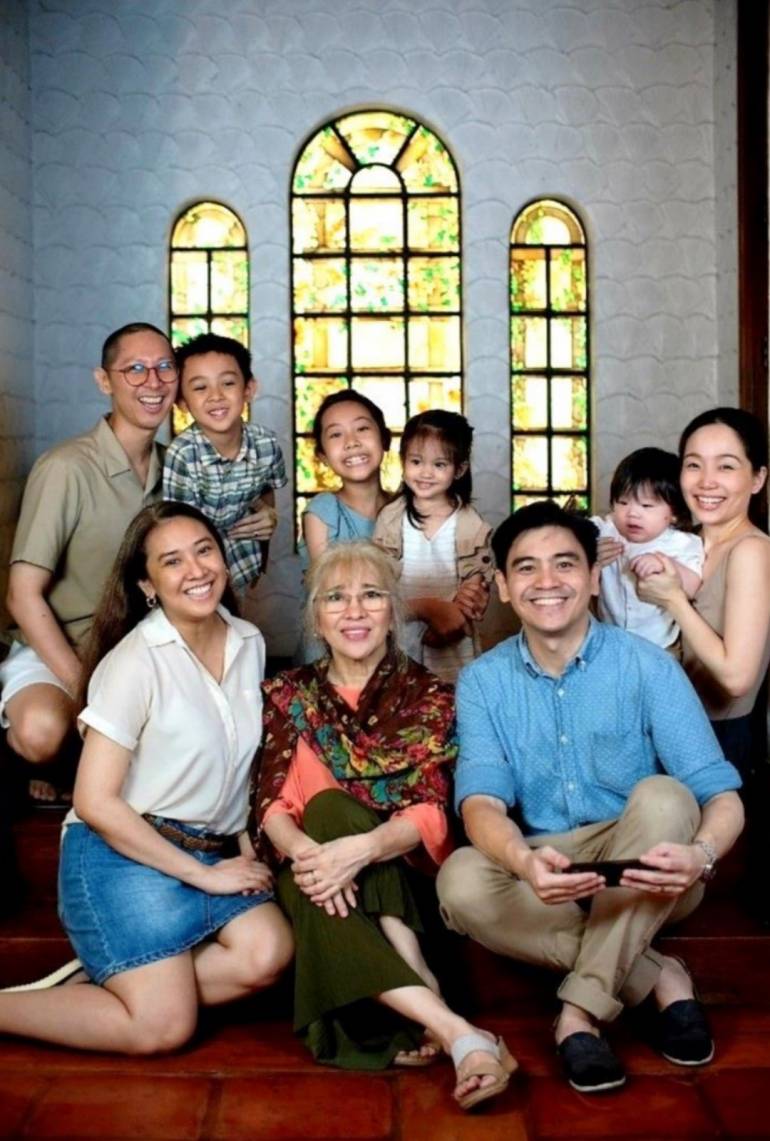
What were your thoughts on death and dying before writing the book and after the book was published? Was there a significant difference?
When I was five years old, I witnessed the coffin of an aunt being lowered into the ground at her burial, and it impressed in me the fear of death. When my husband died, my reflections on grief awakened me to the realization that death is not the end of existence.
While reaching out in thoughts and prayers to him, I became aware that there is something about him that has not died: his love. It remains even in the empty spaces of his absence. This experience turned my fear of death into a "knowing" that he had not gone. He lives on in the hereafter. And when my time comes to pass on from this world to the next, I will find myself reunited with him on the other side. There is comfort in this.
You have been a professor and promoter of Christian-Muslim dialogue in the Philippines, and the Association of Southeast Asian Nations (ASEAN) region. What have been your experiences?
I have been engaged in that field for over two decades, so it will take more than a few lines to share my experiences here. But suffice it to say that what stands out to me is the experience of DIALOGUE in interfaith relationship-building not merely the exchange of words.
It is love in action, for it is a way of being in a relationship with "others" that sees the presence of God even in those who do not share our Christian faith. It is a way that moves us to reach out beyond our comfort zones to honor the goodness of God in the "other" even when "goodness" may not be readily apparent.
Why and how were you interested in inter-religious dialogue?
I began to develop an interest in inter-religious dialogue while I was completing my master’s degree in Theological Studies in the late 90s. I had these burning questions I asked myself: "Why do people of faith fight each other in the name of God?" and "What makes my Christian faith unique amid all the other faiths in the world?" What does it mean to be a Catholic Christian in the world today?" In seeking answers, I found myself getting deeper into the field of dialogue with "others."
Why is it important to promote inter-religious dialogue in Asia?
Asia is not only the world’s largest continent; it is the birthplace of the world’s religions. Because of this diversity, conflict is rife in the region, and one of its major causes is religion. Therefore, interreligious dialogue is key to promoting relationships of mutual respect, understanding, and cooperation for peace.
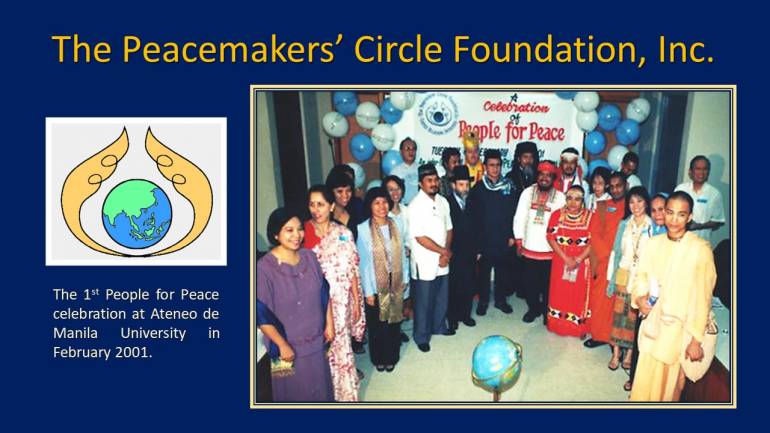
You are the founder and executive director of The Peacemakers’ Circle Foundation, Inc. Please tell us more about it and its activities.
The Peacemakers’ Circle Foundation, Inc. (TPCFI) is a Manila-based NGO that was established over two decades ago, in 2001. It is composed of members of diverse religions, spiritual expressions, and indigenous traditions who strive to bring to the fore the highest teachings and ideals of their respective faith traditions in realizing "the change that we wish to see in the world."
We organize events, workshops, and activities using various forms of dialogue, especially between Muslims and Christians, in poverty-stricken and conflict-ridden grassroots communities around Metro Manila and Mindanao.
You are a lecturer on Muslim-Christian Dialogue for Nation-Building, Conflict Transformation, and Peace among Religions at Ateneo de Manila University. How is Muslim-Christian dialogue intrinsically linked to nation-building and the promotion of peace?
Muslims in the Philippines have been fighting for their right to self-determination since the Spanish conquest in the 16th century. Their struggle continues to this day. Peace remains uncertain for them despite the ratification of the Bangsamoro Organic Law in 2019, which is necessary for the formal creation of the Bangsamoro Autonomous Region in Muslim Mindanao (BARMM), southern Philippines.
Success and nation-building are possible when attitudes of prejudice and discrimination against Muslims among the predominantly Christian populace are diminished through education.
Last words.
This book, which won the 16th Cardinal Sin Catholic Book Awards for best in the Family Life category, might seem far removed from the inter-religious dialogue work that I have been engaged in for over two decades. But a deeper look into the heart of both grief and healing and inter-religious relationship-building would reveal that it is God’s "universal" and all-embracing love that has held me together throughout the journey.
Radio Veritas Asia (RVA), a media platform of the Catholic Church, aims to share Christ. RVA started in 1969 as a continental Catholic radio station to serve Asian countries in their respective local language, thus earning the tag “the Voice of Asian Christianity.” Responding to the emerging context, RVA embraced media platforms to connect with the global Asian audience via its 21 language websites and various social media platforms.










